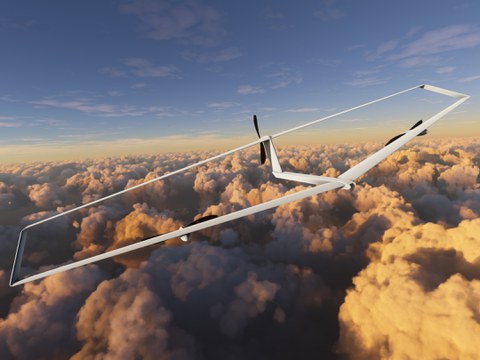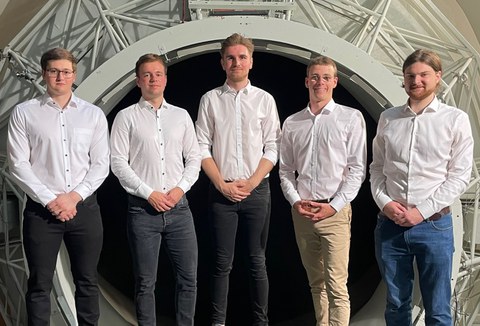Aug 18, 2023
Student success at DLR Desing Challenge 2023

The concept AirLive of the student team of the TUD Dresden University of Technology as the design of an innovative highly efficient air vehicle for maintaining internet supply in the event of crises for the year 2040
At the student competition "Design Challenge 2023" of the DLR, the team from the Chair of Aircraft Technology at TUD Dresden University of Technology was awarded with the fourth place for their design AirLive as an innovative unmanned aerial vehicle for maintaining internet supply in the event of crises.
For the seventh year in a row, DLR set a challenging design task for students of aeronautical engineering at German universities. This year's topic was "Securing communication paths in crisis situations!". The topic was dedicated to the highly topical task of restoring and maintaining communication routes in the event of a disaster. The task was to design an aircraft that acts as part of a fleet system (system-of-systems approach) and is able to provide internet coverage for large areas. The aircraft should entry service in 2040 and have a high efficiency in continuous operation.
This year, a team from the TUD Dresden University of Technology, consisting of the students Karl Kühmstedt, Felix Herrmann, Martin Pirags, Thijs Daenen and Tobias Garsoffke, once again took on the challenging design task. Besides their curriculum, they developed the design AirLive – Air Located internet vehicle for emergency within only about four months.

The student Design Challenge team 2023 of the TUD Dresden University of Technology (from left to right: Tobias Garsoffke, Felix, Herrmann, Martin Pirags, Karl Kühmstedt, Thijs Daenen)
AirLive's features include a boxed wing configuration, environmentally friendly fuel cell-based propulsion and a modular design. Three electric propeller drives ensure efficient propulsion. By using a winch launch, similar to gliders, the take-off mass is reduced and a targeted design for the intended continuous operation is realized.
Thus, in view of the planned entry-into-service 2040, AirLive is consequently pursuing an innovative approach to combine reliability with efficiency and environmental compatibility. As a result, AirLive offers a future-oriented way to provide emergency communication services. Thanks to its modular design, it can also be used for a wide range of applications outside of crisis situations, for example for providing security for large events or research purposes.
© Design Challenge Team TU Dresden 2023
As part of the competition, the concept was detailed by a technical report and presented in a short video as well as in a presentation to a jury of experts.
Further information on this year's DLR Design Challenge is available on the homepage of DLR.